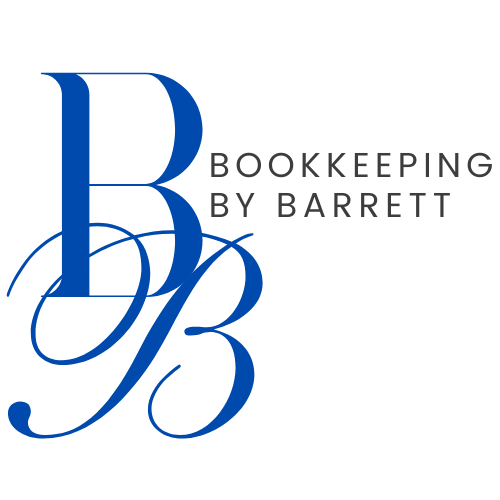Hi business owners! Whether you’ve started a small business, or are a freelancer or entrepreneur, managing your finances is key to achieving your goals and fueling your growth this year and beyond. Keeping your books in tip-top shape not only helps you make informed business decisions but also fosters a mindset of financial confidence and prosperity.
I understand that managing your financial records can sometimes feel overwhelming, but with the right tools and strategies, you can turn bookkeeping into a powerful asset for your business. This guide is packed with practical tips and strategies to help you stay organized, save time, and make the most of your hard-earned money.
1. Stay Consistent with Record-Keeping
One of the easiest ways to stay on top of your finances is by keeping records consistently. Whether you’re tracking expenses, income, or even client invoices, make it a habit to update your books regularly. A quick weekly or bi-weekly check-in can prevent the chaos of end-of-month scrambling. The key is consistency. Set aside time each week to reconcile accounts, review expenses, and ensure everything is in order. By staying consistent, you won’t miss important transactions or tax deadlines.
Pro Tip: Use cloud-based accounting software like QuickBooks Online to easily track transactions and stay on top of your bookkeeping from anywhere. Automating the process will save you time and reduce the chance of human error.
2. Organize Your Expenses by Category
Do you know where all your money is going? Categorizing your expenses is crucial for managing your business’s financial health. Break your expenses down into categories such as office supplies, marketing, utilities, and payroll. This helps you spot areas where you may be overspending, and it’s also essential for tax deductions.
Pro Tip: When categorizing, be specific. For example, instead of a broad “marketing” category, break it down into “digital advertising,” “social media campaigns,” or “website maintenance.” The more detailed, the better!
3. Monitor Your Cash Flow Like a Hawk
Cash flow is the lifeblood of your business. Without it, even the most profitable company can falter. Make it a habit to regularly monitor your cash flow to ensure you’re not running into unexpected financial stress. Knowing when money is coming in and when bills are due allows you to avoid any surprises and plan for future expenses.
Pro Tip: Create a cash flow forecast for each month or quarter and update it regularly. This will help you visualize your inflows and outflows, giving you a clearer picture of your financial health and any upcoming lean months.
4. Separate Business and Personal Finances
If you’re still mixing your personal and business finances, it’s time to make a change! Keeping your personal and business expenses separate is essential for staying organized, simplifying your tax filings, and protecting your business legally. Having a dedicated business checking account and credit card makes it easier to track your business expenses, giving you a more accurate picture of your financial situation.
Pro Tip: Set up automatic payments from your business account for recurring expenses (such as rent, utilities, and subscriptions) to avoid missing payments and keep your books organized. Keeping your finances separate also makes tax season a breeze.
5. Automate and Streamline Your Invoicing System
Chasing down late payments can be a drain on your time and energy. That’s why it’s important to have an efficient invoicing system in place. Automate your invoicing and payment reminders to save time and reduce human error. QuickBooks Online allows you to create custom invoices, set up automatic reminders for overdue payments, and even offer clients the ability to pay online.
Pro Tip: Always include payment terms on your invoices (e.g., “Due within 30 days”) and consider offering discounts for early payments. This not only encourages clients to pay on time but also helps keep cash flow steady.
6. Use Financial Statements for Decision-Making
Financial statements are your business’s report cards—they provide a snapshot of your financial performance. The three most important financial statements are:
- Income Statement (Profit & Loss): Shows your revenue and expenses, helping you determine whether you’re profitable.
- Balance Sheet: Provides a snapshot of your assets, liabilities, and equity at a specific moment in time.
- Cash Flow Statement: Tracks the flow of cash in and out of your business, helping you maintain liquidity.
Regularly reviewing these statements will give you insights into how your business is performing, helping you make informed decisions.
Pro Tip: Don’t wait until the end of the year to review your financial statements. Make it a monthly habit to assess how your business is doing, so you can make adjustments if needed.
7. Leverage Tax Deductions to Maximize Savings
Tax season doesn’t have to be a stressful time. Keeping detailed records throughout the year can help you take advantage of various tax deductions available to your business. Common business expenses that may be deductible include:
- Office supplies and equipment
- Marketing and advertising
- Home office expenses (if applicable)
- Travel and meal expenses related to business
- Professional fees (e.g., accountant, lawyer)
Pro Tip: Work with a tax professional who understands your business to ensure you’re claiming all possible deductions and optimizing your tax savings.
8. Set Financial Goals for Growth
Bookkeeping isn’t just about tracking what’s already happened; it’s about positioning your business for future success. Set financial goals for 2025, such as increasing revenue, reducing expenses, or investing in new equipment. By setting clear goals, you’ll have a roadmap to follow and know exactly what you need to do to keep growing.
Pro Tip: Break your goals down into actionable steps, such as increasing sales by a certain percentage or cutting overhead costs in specific areas. Tracking your progress will help you stay motivated and focused on growth.
9. Review Your Pricing Strategy Regularly
Your pricing strategy is crucial to your profitability. Review your pricing regularly to ensure that it aligns with market trends, your business’s value proposition, and your growth objectives. Pricing too low can hurt your cash flow, while pricing too high might drive away potential customers.
Pro Tip: Use your financial statements to identify profitable areas of your business. You might find opportunities to adjust your pricing in certain areas while offering discounts or promotions to attract new clients.
10. Embrace a Growth Mindset for Financial Success
Bookkeeping can be much more than just a set of tasks—it’s an opportunity to learn and grow. Embrace a growth mindset and use your financial data as a tool for improvement. Continuously educate yourself about financial best practices, and don’t be afraid to invest in tools and resources that will streamline your processes. With the right approach, your bookkeeping can be a powerful tool to help you reach new heights in 2025.
Pro Tip: Stay open to learning and ask for help when needed. Whether it’s investing in professional bookkeeping services or attending webinars and workshops, growth comes from taking proactive steps.
Let’s Grow Together!
I’m here to help you manage your finances and ensure that your business is positioned for success in the year ahead. By implementing these bookkeeping strategies, you’ll be on the right track to financial organization and growth. Don’t hesitate to reach out if you need assistance or have any questions—I’m always happy to help!
Here’s to a prosperous and organized year! Best wishes to you. – Michelle Barrett


Leave a Reply